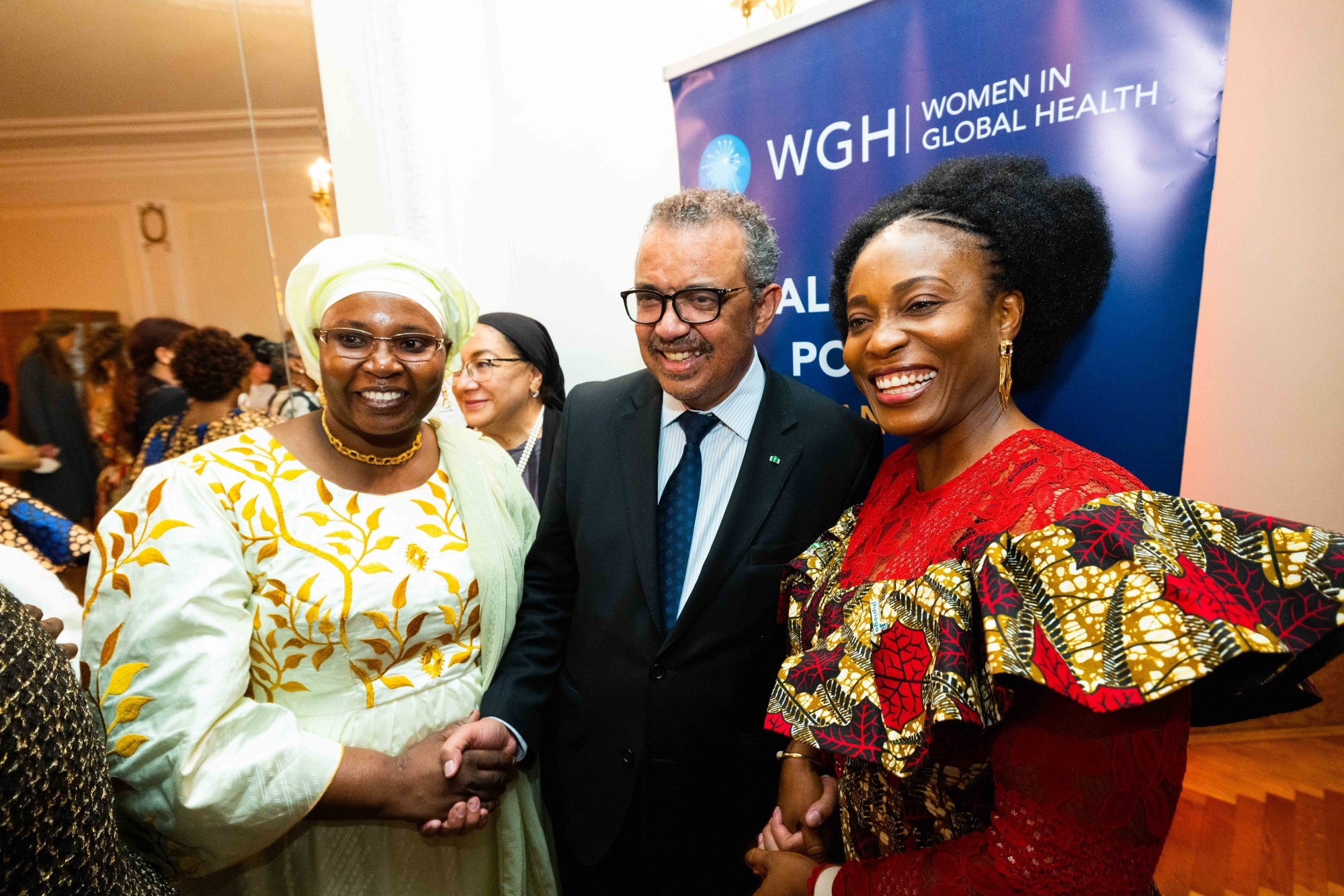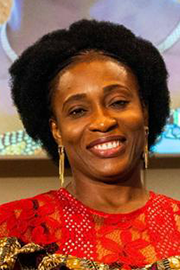Please can you introduce yourself and tell us what inspired your career in women’s health?
My name is Chioma Oduenyi, and I am a gender and development expert with over 18 years of hands-on experience in public health and social development. My mother’s sheer resilience to break barriers inspired me to dream of becoming a woman who will break through the glass ceiling and stop at nothing to accomplish giant strides.
I was lucky to find myself in an inspiring career in global health. The visible impact of my work that keeps humanity healthy motivates me daily to work even harder. Working extra hard has ferried me on the fast lane to where I am today.
Women currently account for 70% of the health workforce globally but are often left out of decision-making, demonstrating that women deliver health, but do not lead it. As a woman in health, what are some of the biggest challenges women currently face when starting a career in health?
In my opinion, the biggest challenge has remained “gender stereotypes,” which see women as good at doing the bulk of the health service delivery work but not good enough to be/become managers and leaders in the same health system where they serve and deliver optimally.

Image Credit: Ground Picture/Shutterstock.com
How will the recognization of gender inequalities in the health workforce help to improve global health security?
Being intentional in promoting gender parity in training, recruitments, promotions, appointments, elective positions, etc., will help to improve global health security and give women the platforms and voices to advance the necessary change in global health.
You have recently been awarded a Heroine of Health Award by Women in Global Health for your contributions and achievements. Please can you tell us about the work you are involved with that led to this award?
I pioneered gender integration and mainstreaming through my work in Nigeria for Jhpiego, an international non-profit health organization affiliated with Johns Hopkins University, and currently lead work to prevent and respond to gender-based violence in Nigeria through USAID’s MOMENTUM Country and Global Leadership.
Additionally, I successfully led policy advocacy in Nigeria’s Federal Ministry of Health (FMoH), where I supported the development of the first-ever Gender and Health Policy in Nigeria, accompanied by a strategic implementation plan under USAID’s Maternal and Child Survival Program (MCSP) in 2018.
Heroines of Health 2022: Leading Change
What does this award mean to you?
This award means an entire lifetime to me because I never imagined that my work in Nigeria would attract such global recognition. What an honor to be awarded a Heroine of Health! I am truly humbled, and I’d like to especially thank my organization, Jhpiego, for nominating me for this prestigious award, as my joy sincerely knows no bounds. Also, I’d like to thank my family for the immense support that has given me the courage and resilience to come this far.
I received this award on behalf of my colleagues worldwide, who continue to inspire me every day to keep advocating for an equal world, and I dedicate the same to all who push daily for more equitable and resilient health systems. With this award, I will stop at nothing until all barriers that keep women behind are completely broken down!

Image Credit: Women in Global Health
These awards have been set out to highlight incredible women who are the backbone of global health systems but are traditionally unrecognized. As an advocate for gender equality, how important is it to showcase all the incredible women that work to make the world a better place, and what more should governments and policymakers be doing to support women in health and improve inequality?
Very important because, as you are aware, women are the bedrock of global health systems. From the over 80% of women who make up the global health workforce delivering frontline health services at the hinterlands to the countless number of women who perform unpaid care work for their families all around the world, women remain at the center of health service delivery but are largely unrecognized.
Governments and policymakers must intentionally look out for women’s active participation in the developmental process, particularly in health management. If we do not become intentional in training today’s women, then we already know that we cannot find women with the requisite knowledge and skills to occupy the healthcare space of the future. Specifically;
- Through honest political advocacy, we can deconstruct patriarchal and discriminatory policies that continue to subordinate women in several countries
- Through global solidarity, equity, and respect for human rights, we can intentionally develop women-friendly policies that will open the space for diversity, equity, and social inclusion
- Finally, we should deliberately put in place “women capital development plans” that will ensure the availability of a critical mass of women leaders to occupy the healthcare management spaces in the future if we must achieve equitable and resilient health systems.
You have devoted your career to improving gender equality worldwide. How important is equality to the world we live in, and how can the empowerment of women lead to better representation in decision-making?
The importance of rooting for equality in our world cannot be overemphasized. Imagine that we neglect the over 50% of the world’s population who are women; then the world would be standing on one foot and positioned to fall without being pushed.
If we empower women intentionally through educational, financial, and social inclusion, the return on investments would be a highly productive and prosperous world.

Image Credit: Andrey_Popov/Shutterstock.com
Throughout your career, what has been your proudest achievement?
Incidentally, my proudest career achievement has been one of my foremost pieces of work that contributed to earning me this award, and this was my successful policy advocacy to Nigeria’s Federal Ministry of Health (FMoH) to support the development of the country’s first-ever Gender and Health Policy in Nigeria under the USAID/Maternal and Child Survival Program (MCSP).
Are you hopeful that with continued awareness and support for women in health, we will one day see these women taking on higher, better-paid roles? What would this mean for global equality?
I am very hopeful that women will one day be on par with their male counterparts in global health because we will continue to push for equality until the inequality narrative is completely reversed. And this would mean a resounding success for global equality.
How will the improvement of awareness surrounding women in health subsequently impact younger generations of women? Why is it important to inspire young women to start a career in health?
Challenging gender stereotypes that frame women as lesser is critical in impacting younger generations of women. We must continue to take both individual and collective actions to change the narrative for women. We must be united in the quest to end the drivers of gender inequality and send the strong message that knowledge and skills are neither male nor female; instead, knowledge and skills are bisexual! This will help create more room for younger girls coming behind to be trusted with new opportunities.
What is next for you and your work?
More work, more passion, more dedication, and more commitment! I am fired up to simply do much more for global health; thank you!
About Ms. Chioma Oduenyi
In Nigeria, Ms. Oduenyi leads MOMENTUM Country and Global Leadership’s efforts to address major contributors to maternal mortality and morbidity. The project helps prevent and mitigate the consequences of violence against women and girls, address possible drivers of child and early forced marriages, and supports early adoption of family planning.
Using her decades of expertise and experience combatting gender-based violence, Ms. Oduenyi supports local organizations to provide their communities with information and knowledge to act to transform discriminatory gender and social norms. She has pioneered gender integration and mainstreaming through her work in Nigeria for Jhpiego, an international non-profit health organization affiliated with Johns Hopkins University that leads the MOMENTUM Country and Global Leadership project. Read the full profile of Ms. Oduenyi here.